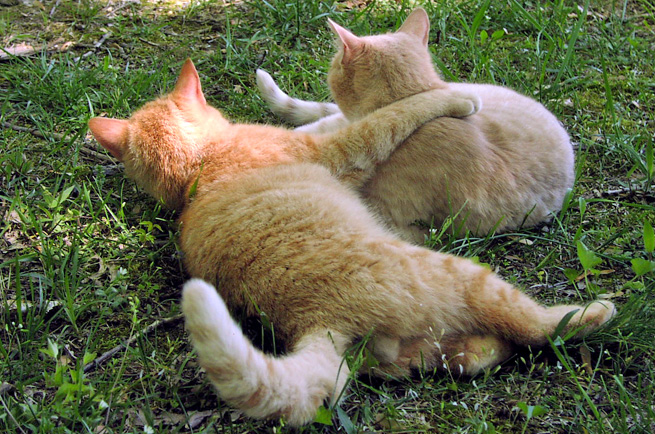Caring for a pregnant cat
Are you a first-time cat breeder with a newly expectant mum, or have you been caught by surprise with a now pregnant puss and don’t know what to expect?
28 Jan 2017 By Sarah Billington Comments
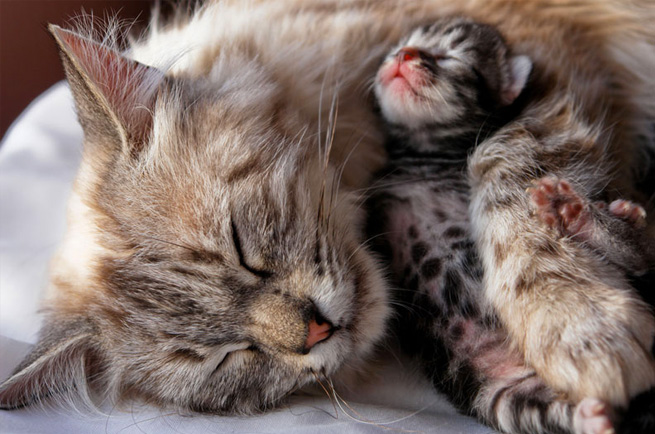
Zookie’s gathered some tips on caring for your feminine feline during her lead up to motherhood.
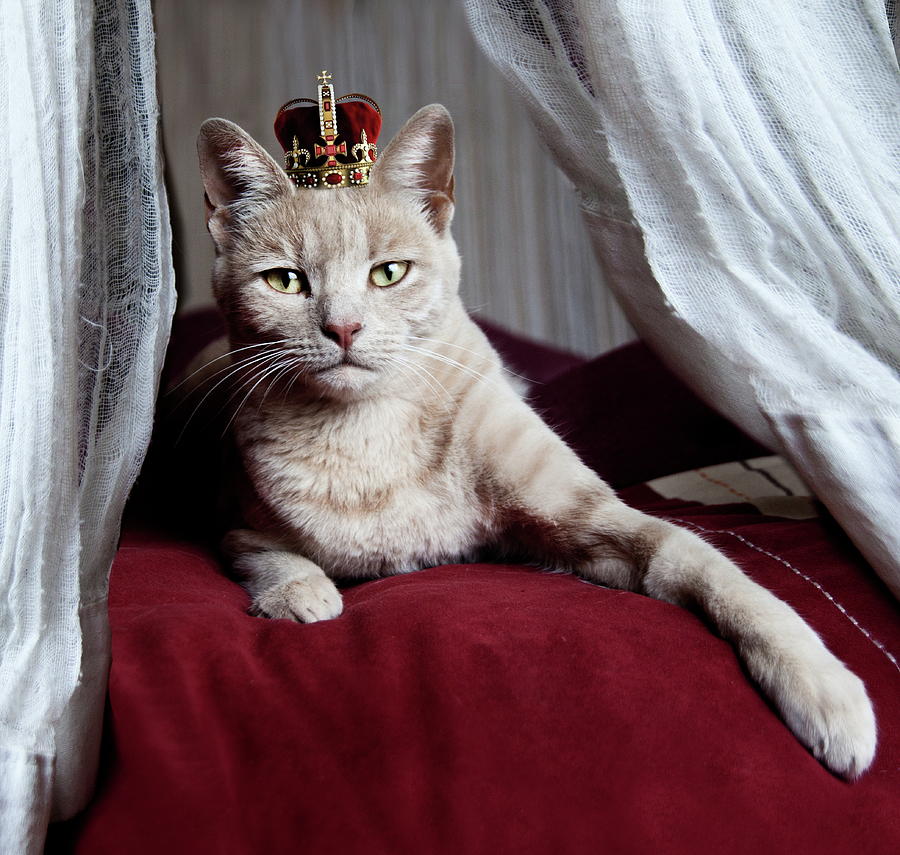
Bow down
First things first – Princess Sparkles has a new name. Did you know that a pregnant cat is called a queen? If you aren’t one to normally shower your cat with love, treats, and attention, then now is the time to bow down to royalty and treat her with the care and respect she deserves. Just like human mums-to-be, it’s a difficult time she’s going through so she’ll need your help to keep her calm, happy, and healthy.
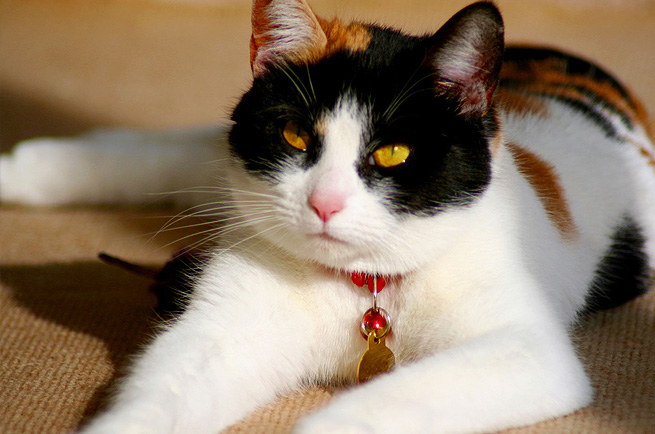
How long will she be pregnant for?
Cats have much shorter pregnancies than humans (lucky things). Feline pregnancies generally last between 65-69 days, though anywhere between 60-70 days is normal. At least kitty’s pregnancy won’t be a drawn out experience, and you may not know she’s pregnant until she seems a bit under the weather because of morning sickness—making it seem even shorter!
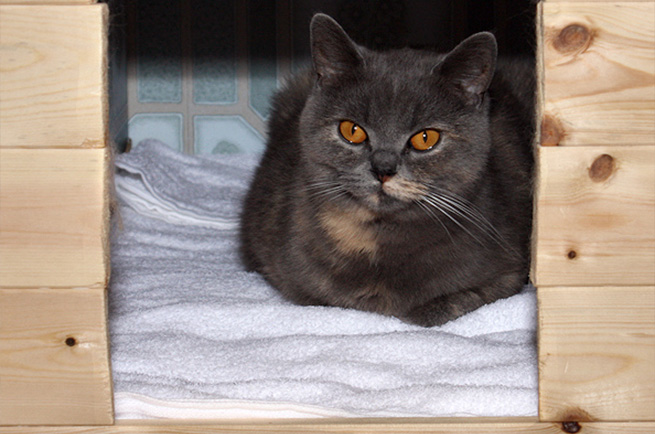
Yes, cats get morning sickness
Mums in the house can empathise with their queen, as around week three pregnant cats can experience morning sickness; they might go off their food and seem quite lethargic. Boiled chicken and rice can help an unsettled tummy. She could also do with some time to herself to rest and recover, alternated with some reassuring cuddles.
During her pregnancy, your queen may become moody—it certainly can’t be comfortable having a belly full of growing kittens, and you may find that she becomes more vocal than usual, meowing a lot, or demanding more attention, affection, and reassurance.
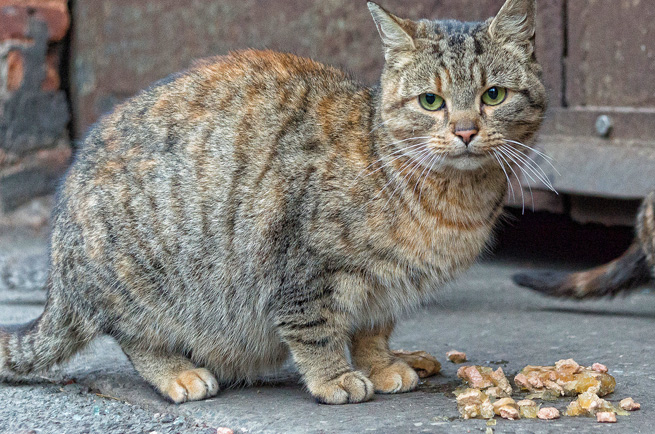
Expectant mums and food
Though she won’t fully start showing her kitten-filled bump until the last couple of weeks, it is normal for cats, like humans, to gain weight during pregnancy. Be careful not to overfeed her! Yes, she is now eating for two—or even eight!—but overfeeding your queen can lead to serious complications during labour. Instead, feed her as normal; her regular daily quantity of her favourite foods, but in smaller, more frequent meals. There’s not as much room in her stomach for large meals, so providing small serves several times a day is better.
Adding extra protein to the normal foods that she eats and enjoys will do her and the kittens-to-be good, and in the last weeks of pregnancy treating her to the added fat content and protein of kitten food, which is formulated specially for growing cats, can give those kittens the very best start in life.
Tip: Keep an eye on your queen and what she eats; if you see her eating dirt you should take her to vet as she may have developed a condition called Pica, a nutritional imbalance or mineral deficiency. Your vet can prescribe her some supplements.
Accidents happen
During pregnancy, your queen may have an accident or two and not make it to the litter box in time due to the extra pressure being placed on her bladder. Now is not the time to scold her for it, poor love. She really did mean to get there.
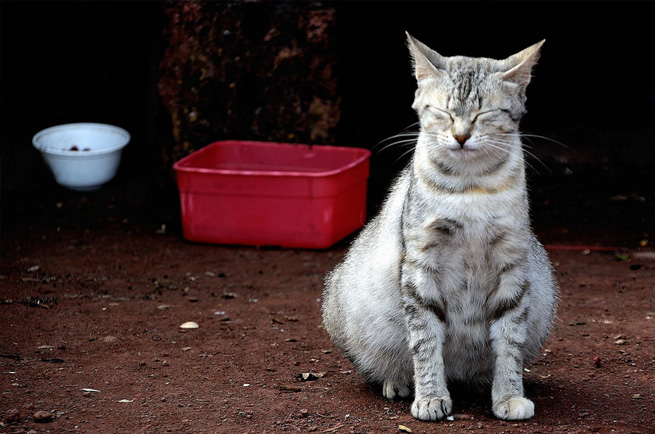
The last two weeks
For the last two weeks of your queen’s pregnancy keep her nice and secure inside where she will be safe and content and you can keep an eye on her. Also, by keeping her inside, she is less likely to give birth outside where there are potential predators.
Provide a nesting box for your queen, with a comfortable blanket inside and her food and water bowls beside it, to encourage her to spend time there leading up to the big day.
Tip: Make sure the sides of the box aren’t too high that she can’t get her swollen belly over it!
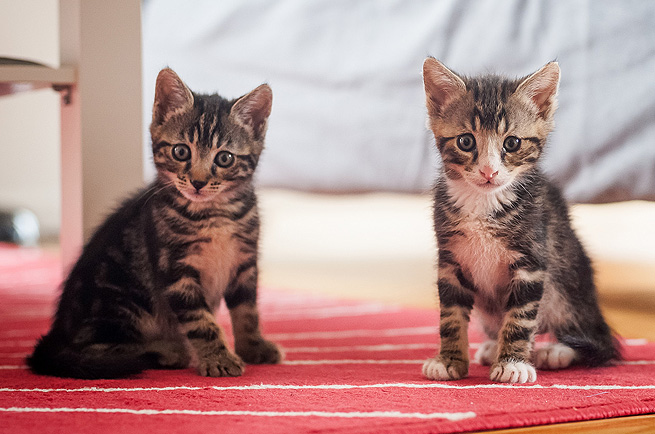
At a glance: Things you should do for your cat during her pregnancy
- Make sure there is food and fresh water available to her at all times
- Allow her to graze, or eat several small meals rather than a few large ones
- Get her – and the kittens – health checked at the vet
- Keep her confined inside for the last two weeks of her pregnancy
- Provide a nesting box for giving birth in
At a glance: Things you should NOT do for your cat during her pregnancy:
- Overfeed her
- Scold your cat for toileting outside of the litter box – she probably couldn’t help it
- Worm your cat during pregnancy
- Medicate without checking with your vet first. Some medications can cause birth defects or even abortion.
Have you cared for a pregnant cat? We’d love to hear your tips or stories.
28 Jan 2017 By Sarah Billington Comments
comments powered by Disqus

